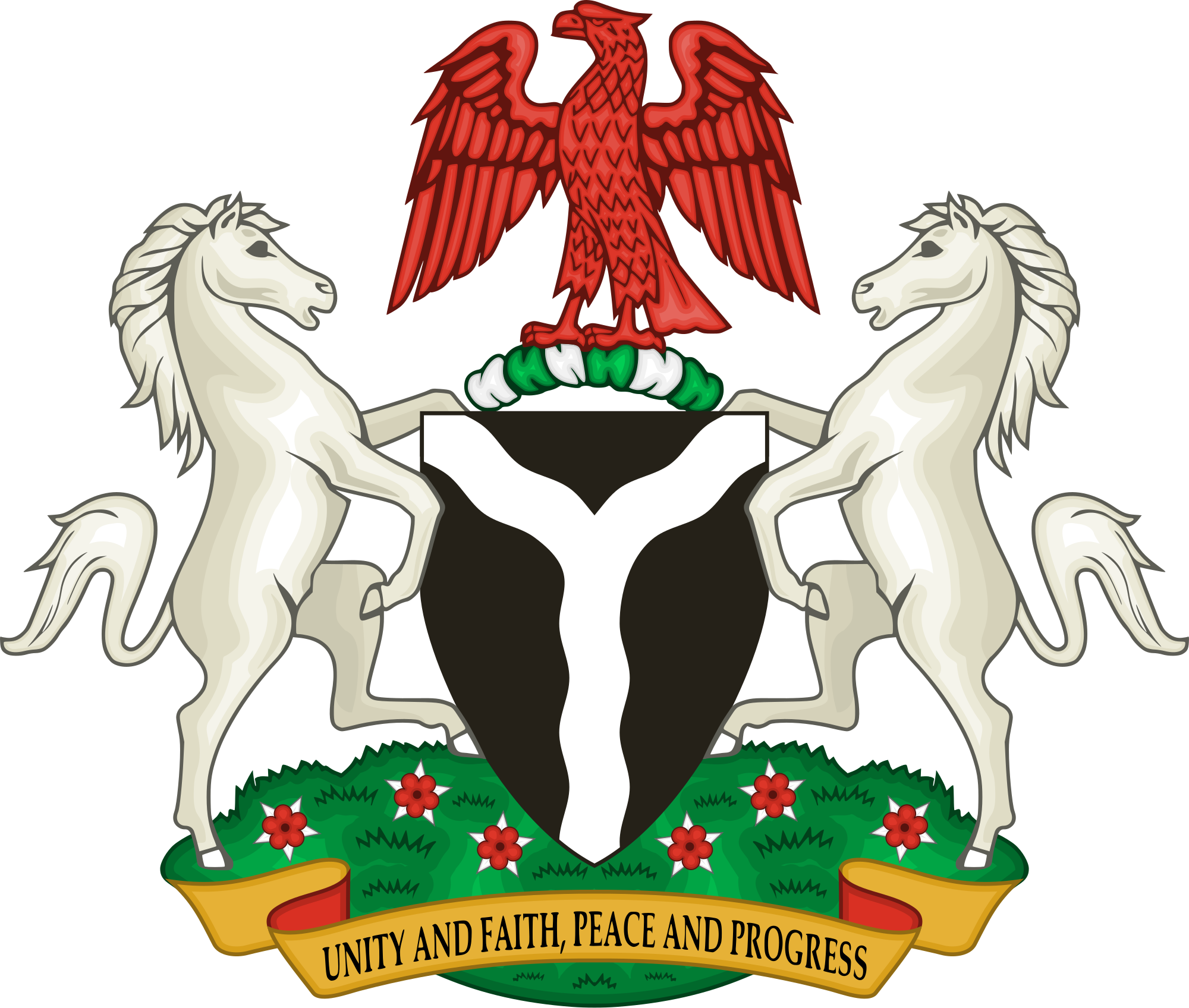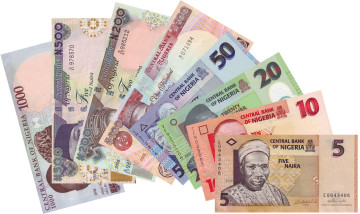Nigerian National Symbols - Politics - Nairaland
Nairaland Forum / Nairaland / General / Politics / Nigerian National Symbols (2570 Views)
Flags, Coats Of Arms, Symbols And Monuments Of Nigerian States (2023) / Nigerian National Symbols / Flags, Coats Of Arms, Symbols And Monuments Of Nigerian States (2) (3) (4)
(1) (Reply)
| Nigerian National Symbols by Nobody: 7:58pm On Jun 08, 2018 |
1. Nigerian Coat of Arms  To give its own meaning, there are various things found on the Nigerian Coat of Arms which include .2 white horses, a shield, 2 bands, an eagle and a green plant (cactus) at the down part of the shield. The white horses symbolize dignity, the black shield represents fertile soil, the eagle means strength, the bands which look like the letter Y represent River Niger and Benue, and finally the green plant symbolizes rich soil and beauty of the land. The Nigerian Motto which is written boldly on the coat of arm is ‘’Unity and Faith’’. 2. Nigerian National Flag  The Nigerian National flag was for the first time raised on 1st October 1960 after it had being designed in the year 1959 by Michael Taiwo Akinkunmi who was from Ibadan the capital of Oyo State in the western part of the country. He was a student in London. There are two colours on the Nigerian Flag which are Green and White whereby it’s vertically divided into three equal parts. The Green represents agriculture while on the other hand, the white represents peace and wealth and prosperity of a country. Rules that guide the Nigerian Flag There are some rules governing the hoisting of the Nigerian Flag and its maintenance which are listed below: First of all, on no account should any other flag be raised higher than the Nigerian flag. On the other hand, it must be raised at sunrise and lowered at sunset. Another rule is that the Nigerian flag must be hung on important days or any important event and should be hoisted at half-length to respect the fallen heroes. Finally, if for any reason, the Nigerian flag gets torn, it must be destroyed and replaced immediately. 3. Nigerian National Anthem The Nigerian National anthem was adopted in 1978 and composed by the then Nigerian Police Band which includes Eme Etim Akpan, John A Ilechukwu Sota Omoigui, P. O. Aderibigbe and B A Ogunnaike led by Benedict E. Odiase. The Anthem has two stanzas where by different words were put in place to make sure that something must be sung in the country to show respect and honour. The anthem raises the faith of Every Nigerian and also reminds us of our unity as well as common goals which must be achieved. It also talks about the aims and aspirations for the coming generation. Here is the Nigerian National Anthem: Ist Stanza Arise, O compatriots Nigeria's call obey to serve our fatherland with love and strength and faith. The labour of our heroes past shall never be in vain, to serve with heart and might one nation bound in freedom Peace and unity. 2nd Stanza Oh God of creation, direct our noble cause Guide thou our leaders right Help our youths the truth to know In love and honesty to grow And living just and truth Great lofty heights attain To build a nation where peace And justice shall reign 4. National Pledge In September 1976, the National pledge was written by a Nigerian Professor, by name Prof (Mrs) Felicia Adebola. The Nigerian National pledge is known to be an oath of compliance of support of the country. Most times, the National anthem is sung followed by the National Pledge. It has therefore being decreed that in all schools, students should recite the National Pledge every day. It is always recited on attention, moreover, it is one thing to say it and it is another thing to abide by what it says. This is the National Pledge below: I pledge to Nigeria my country To be faithful loyal an honest To serve Nigeria with all my strength To defend her unity And uphold her honour and glory So help me God Nigerian Naira  The Central Bank of Nigeria is the only authorized issuer of the Naira. On different denominations of the Nigerian Naira, the pictures of heroes of the Nigerian country are inscribed. The 50 naira note most especially denotes unity in diversity where different major tribes are seen in it. Furthermore, we all know that every country in the world also have their own legal tender which symbolizes their currency. For instance, USA uses Dollar, Benin republic uses Franc, Ghana uses Cedis and Nigeria uses Naira. The naira is Nigeria’s official symbol of legal tender since 1973 so where ever you see the Naira, one should know that it’s for Nigeria. Cc: Lalasticlala Mynd44 OAM4J Dominique Seun 1 Like |
| Re: Nigerian National Symbols by Nobody: 8:01pm On Jun 08, 2018 |
 |
| Re: Nigerian National Symbols by economia: 8:58pm On Jun 08, 2018 |
rottencorpse: |
(1) (Reply)
Why Is No Core Northern Ex-governor Facing Corruption Charges? / Biography Of Obafemi Awolowo / BREAKING: Catholic Church Disowns Fr. Mbaka, Says He Might Be Disciplined
(Go Up)
| Sections: politics (1) business autos (1) jobs (1) career education (1) romance computers phones travel sports fashion health religion celebs tv-movies music-radio literature webmasters programming techmarket Links: (1) (2) (3) (4) (5) (6) (7) (8) (9) (10) Nairaland - Copyright © 2005 - 2024 Oluwaseun Osewa. All rights reserved. See How To Advertise. 30 |